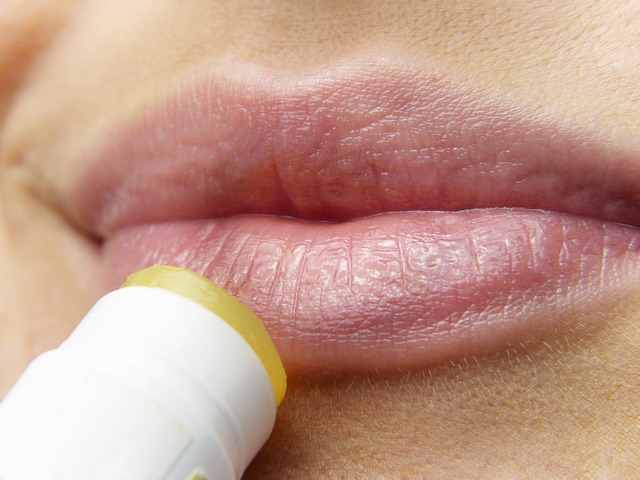Herpes is a widespread viral infection in the United States Affecting millions of individuals

I hope that this post “Home Remedies for Herpes – Best Natural Treatment” will help you, just know that you’re not alone
It is estimated that approximately 1 in 6 infected person’s aged 14 to 49 have genital herpes, primarily caused by the herpes simplex virus type 2 (HSV-2).
In addition, many people may be unaware they are infected, as symptoms can be mild or non-existent.
The Centers for Disease Control and Prevention (CDC) indicates that around 50 to 80 percent of adults carry the virus responsible for oral herpes, typically HSV-1.
Given these statistics, herpes remains a common sexually transmitted infection, highlighting the importance of awareness, prevention, and education regarding safe practices to reduce transmission risks.

Understanding Herpes: Causes and Symptoms
Herpes is a viral infection caused by the herpes simplex virus (HSV), which has two primary types: HSV-1 and HSV-2. HSV-1 generally causes oral herpes, manifesting as cold open sores or fever blisters around the mouth.
In contrast, HSV-2 predominantly leads to genital herpes, appearing as painful sores in the genital area.
However, both types can cause infections in either location, highlighting the importance of awareness and understanding of transmission routes.
Transmission of the herpes virus occurs through direct contact with an infected individual.
This can include kissing, engaging in oral sexual contact, or other intimate interactions.
Additionally, the virus infected area can be spread even when sores are not present, making it crucial for individuals to practice safe approaches to intimacy.
Factors such as skin-to-skin contact and sharing personal items may increase the risk of contracting or spreading herpes.
The symptoms of herpes vary among individuals but usually include painful blisters or sores in the affected area, itching, and burning sensations.
Initial outbreaks may be accompanied by flu-like symptoms such as fever, swollen lymph nodes, and fatigue.
It is noteworthy that after the initial outbreak, the virus remains dormant in the body, leading to recurrent episodes that are often triggered by various factors.
Stress, illness, or a weakened immune system can exacerbate the frequency and severity of herpes outbreaks.
Understanding these triggers is essential for managing the condition and minimizing its impact on one’s life.
Individuals experiencing stress, for instance, may find that their outbreaks become more frequent or intense, emphasizing the necessity of effective stress management techniques.
Overall, recognizing the causes and symptoms of herpes is vital for those affected, as it lays the groundwork for exploring potential home remedies and treatments later in this discussion.
The Importance of Natural Remedies

The surge of interest in natural remedies for managing herpes symptoms reflects a broader trend toward holistic wellness and self-care.
Many individuals are increasingly seeking alternative treatments that harness the healing power of nature, aiming to alleviate discomfort without the adverse effects often associated with pharmaceutical options.
Home remedies may play a pivotal role in this context, as they not only focus on symptom relief but also support overall health and immunity.
One of the primary advantages of utilizing natural treatments for herpes lies in their typically lower risk of side effects.
Unlike conventional medications, which may introduce a range of undesirable reactions, natural remedies tend to be gentler on the body.
This quality makes them particularly appealing to those with sensitive systems or individuals who prefer a more organic approach to their health.
Moreover, many home treatments also promote soothing properties that can enhance comfort during herpes outbreaks.
Another significant benefit is the empowering aspect of engaging with one’s health through natural remedies.
By opting for home treatments, individuals can take an active role in managing their condition.
This empowerment can foster a better understanding of personal health, possibly leading to improved lifestyle choices that promote lasting wellness.
Additionally, natural remedies often incorporate dietary changes, herbal supplements, and essential oils, all of which contribute to a strengthened immune system.
In essence, the growing inclination towards natural therapies represents a shift in the health landscape, encouraging individuals to embrace holistic methods.
Through the integration of home remedies, people can not only alleviate the immediate symptoms of herpes but also work towards enhancing their overall health and well-being in a safe and effective manner.
Top Home Remedies for Managing Herpes Outbreaks
Herpes outbreaks can be uncomfortable and distressing.
However, there are several home remedies that may provide relief from the symptoms associated with herpes.
These natural treatments not only aim to alleviate discomfort but also promote healing in affected areas.
Below are some of the most effective home remedies for managing herpes outbreaks.
Aloe vera is one of the most recognized natural treatments for a variety of skin conditions, including herpes.
This succulent plant contains anti-inflammatory properties, which can soothe itching and irritation while promoting skin healing.
Applying fresh aloe vera gel directly to the affected area several times a day can help reduce discomfort and speed up the recovery process.
Another popular remedy is tea tree oil, known for its antiviral and antimicrobial properties.
This essential oil may help inhibit the herpes virus and provide relief from symptoms.
For application, dilute tea tree oil with a carrier oil, such as coconut oil, and apply it to the lesions.
Its soothing effect can aid in reducing inflammation and discomfort during an outbreak.
Honey is another effective home remedy due to its natural antiviral effects and its ability to keep the affected area moist.
Applying raw honey to sores can help to reduce pain and promote healing.
Its sugar content can also act as a natural barrier, preventing further irritation while facilitating recovery.
Other remedies include using cold compresses to alleviate pain and reduce swelling, and certain dietary changes such as increasing zinc and vitamin C intake, which can enhance the immune system.
Herbal supplements like lysine, which is an amino acid, may also contribute to reducing the frequency of outbreaks.
Incorporating these home remedies into one’s care routine may provide significant relief during herpes outbreaks and facilitate quicker healing.
Always consult with a healthcare professional before starting any new treatment to ensure its safety and effectiveness.
Dietary Adjustments to Support Healing

Diet plays a crucial role in the management of herpes, particularly in relation to the immune system’s response and inflammation.
Certain dietary adjustments can support healing and potentially alleviate the frequency and severity of herpes outbreaks.
One critical aspect to consider is the balance of specific amino acids, particularly lysine and arginine.
Lysine is an essential amino acid that may help to inhibit the replication of the herpes simplex virus and, thus, could contribute to reduced outbreak frequency.
Incorporating foods that are high in lysine can provide supportive nutrients beneficial for individuals affected by herpes.
These foods include dairy products such as yogurt and cheese, as well as lean meats like chicken and turkey.
Fish, legumes, and certain grains such as quinoa and buckwheat are also excellent sources of lysine.
Other foods that are recommended include potatoes, chickpeas, and some nuts, although caution should be exercised with nuts high in arginine, as they may aggravate herpes symptoms.
Conversely, it is advisable to limit dietary intake of arginine-rich foods during outbreaks or in the context of frequent flare-ups.
Foods high in arginine, such as chocolate, nuts, seeds, and certain types of grain, may contribute to an increase in outbreak frequency by promoting viral replication.
By strategically adjusting the diet to minimize these foods while emphasizing lysine-rich options, individuals may find a measure of relief from their symptoms.
Overall, a balanced approach to nutrition, focusing on immune-boosting foods and understanding the role of lysine versus arginine, can enhance the body’s natural defenses against the herpes virus.
Making these dietary choices may support overall health and contribute positively to herpes management.
Lifestyle Changes to Reduce Outbreaks

Managing herpes outbreaks effectively often requires a multifaceted approach, particularly focusing on making specific lifestyle changes.
Stress, a well-known trigger for herpes outbreaks, can significantly weaken the immune system.
Therefore, adopting stress management techniques is essential.
Practices such as mindfulness, meditation, and yoga not only promote mental well-being but also help in reducing the frequency and severity of outbreaks.
Engaging in relaxation techniques can lower the body’s stress hormones, fortifying the immune system against viral activation.
Regular exercise plays a crucial role in enhancing physical health and boosting immunity, making it imperative for individuals seeking to minimize herpes outbreaks.
Engaging in aerobic activities, such as walking, running, or cycling, can improve circulation and promote overall wellness.
Exercise helps release endorphins, which act as natural stress relievers, further contributing to emotional stability and reducing the likelihood of flare-ups.
The general recommendation is to aim for at least 150 minutes of moderate-intensity aerobic activity per week, complemented by strength training exercises at least twice a week.
In addition to these physical practices, maintaining proper sleep hygiene is vital for a robust immune system.
Sleep deprivation can lead to a weakened immune response, making the body more susceptible to outbreaks.
Individuals should create a restful environment by maintaining a consistent sleep schedule, ensuring a dark and quiet room, and limiting screen time before bed.
Aiming for seven to nine hours of quality sleep each night can greatly enhance one’s ability to manage herpes and promote overall health.
Finally, cultivating a balanced mental state is foundational in reducing herpes outbreaks.
Support from family, friends, or professional counseling can provide essential emotional support, allowing individuals to cope with the challenges that come with the condition.
By implementing these lifestyle modifications, individuals can strengthen their immune systems and decrease the frequency of herpes outbreaks, contributing to a healthier and more fulfilling life.
When to Seek Medical Advice

While home remedies for managing herpes can offer relief for some individuals, there are critical situations where it becomes essential to seek medical advice.
Persistent symptoms or the emergence of new ones that surpass the typical outbreaks can be indicators that professional intervention is required.
Notably, if you experience severe pain, excessive swelling, or bleeding during an outbreak, it is advisable to consult a healthcare professional to evaluate the situation more thoroughly.
Additionally, symptoms that are atypical for herpes such as fever, headaches, or difficulty urinating may suggest complications or a co-infection, necessitating further medical evaluation.
These symptoms should not be overlooked, as they can substantially impact one’s overall health and well-being.
Timely intervention may prevent the condition from worsening or spreading, highlighting the importance of consulting a medical expert.
Healthcare professionals may recommend diagnostic tests to confirm the herpes virus strain and rule out other sexually transmitted infections.
Once diagnosed, there are various medical treatments available that can effectively manage herpes outbreaks and reduce the frequency of episodes.
Antiviral medications, such as acyclovir, valacyclovir, and famciclovir, are commonly prescribed to help control symptoms, decrease the duration of outbreaks, and lower the risk of transmission to partners.
These treatments can provide significant relief and, in some cases, may even offer long-term benefits by minimizing the likelihood of future outbreaks.
Ultimately, while home remedies can play a role in managing herpes symptoms, understanding when to consult a healthcare provider is crucial.
A balanced approach that incorporates both natural remedies and professional medical treatments can lead to improved health outcomes and enhance the quality of life for those affected by the herpes simplex virus.

Conclusion: Embracing a Holistic Approach
In managing herpes effectively, it is crucial to recognize the significance of embracing a holistic approach that combines natural remedies, dietary adjustments, and lifestyle changes.
This multifaceted strategy not only addresses the physical symptoms associated with herpes but also contributes positively to overall well-being.
By integrating natural treatments such as herbal remedies, essential oils, and adequate hydration into daily routines, individuals may find relief and support for their immune systems, which can bolster their capacity to deal with the recurrence of outbreaks.
Dietary changes also play a pivotal role in the management of herpes.

Consuming a diet rich in vitamins, minerals, and antioxidants can enhance immune function.
Foods high in arginine, such as nuts and chocolate, should be minimized, while lysine-rich foods like dairy and legumes may be beneficial.
By mindful consumption of these foods, individuals can genuinely support their body’s innate ability to ward off herpes outbreaks.
Furthermore, lifestyle adjustments are essential in the journey toward effective management of this condition.
Stress management, adequate sleep, and regular physical activity can significantly impact one’s immune response.
Prioritizing self-care through practices such as mindfulness, meditation, and gentle exercise can foster resilience and empower individuals to cope with the emotional and psychological aspects tied to herpes.
It is important to embrace patience throughout this journey, as managing herpes often takes time, perseverance, and ongoing dedication.
Overall, adopting a holistic approach allows individuals to take charge of their health and well-being.
By prioritizing natural remedies, nutritional balance, and lifestyle adaptations, the journey toward living harmoniously with herpes can become a more sustainable and manageable experience.
Thank you for taking the time to read this information about Home Remedies for Herpes – Best Natural Treatment.
It is important to shed light on such topics, as they can significantly impact people’s lives.
Your interest in understanding these remedies not only contributes to your own well-being but also helps raise awareness among others who may be dealing with similar issues.
By exploring various treatment options and lifestyle changes, we can empower ourselves and others to manage this condition more effectively.
We hope that the information provided serves as a valuable resource for you or someone you care about.
Your engagement in this conversation plays a crucial role in breaking the stigma and encouraging open discussions about sexual health.
Thank you once again for your attention and commitment to learning more about health remedies.
Eric Boeckh
Crazy Health Ideas
Причины хронических заболеваний! #хроническиезаболевания #пп #болезнь
https://youtube.com/watch?v=xzczwUmZ7W8Сегодня мы поговорим про хронические заболевания. Откуда они берутся? Давайте разбираться! #хроническиезаболевания #пп #болезнь #правильноепитание…
10 Minute Walking Exercise for Weight Loss| Tai Chi Inspired Walk Fat Burning – Lucy Wyndham-Read
https://youtube.com/watch?v=Aib6kX1_s1IWelcome to this 10 Minute Walk at Home Workout designed to help you burn calories,…
Ramadan 2026 Diet Plan | Lose Weight & Stay Energetic While Fasting | Ayesha Nasir
https://youtube.com/watch?v=Y7e1aSbI554Ramadan 2026 Diet Plan | Lose Weight & Stay Energetic While Fasting | Ayesha Nasir…









Leave a Reply